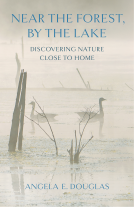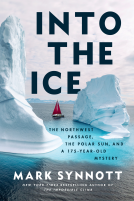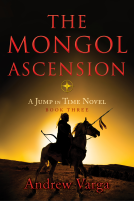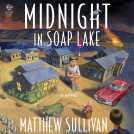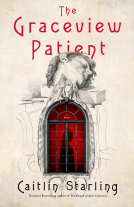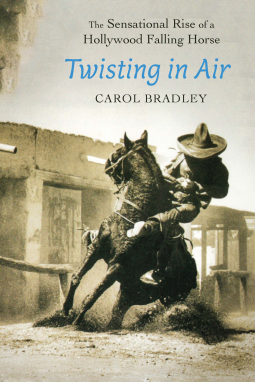
Twisting in Air
The Sensational Rise of a Hollywood Falling Horse
by Carol Bradley
This title was previously available on NetGalley and is now archived.
Send NetGalley books directly to your Kindle or Kindle app
1
To read on a Kindle or Kindle app, please add kindle@netgalley.com as an approved email address to receive files in your Amazon account. Click here for step-by-step instructions.
2
Also find your Kindle email address within your Amazon account, and enter it here.
Pub Date Oct 01 2024 | Archive Date Sep 30 2024
University of Nebraska Press | Bison Books
Talking about this book? Use #TwistinginAir #NetGalley. More hashtag tips!
Description
Cocaine was a thoroughbred–quarter horse mix who doubled many times for John Wayne’s horse Dollor and appeared in a number of Westerns directed by John Ford. Coke was one of only a couple dozen horses who mastered the demanding athleticism required to fall safely at will. Twisting in Air offers an absorbing look at the dark early history of stunt horses in movies and the development of falling horses, the stunt riders who owned, trained, and depended on them, and the behind-the-scenes circumstances in which they performed.
Advance Praise
“This is a book about Hollywood’s glory days and its stunt men, about the barbaric ways we used to treat movie animals, how that slowly improved, and how one amazing thoroughbred-quarter mix named Cocaine (think Seabiscuit) learned the hard way the art of fast falling. It’ll change how you watch animals who appear on the big screen.”—Larry Tye, New York Times best-selling author of Satchel: The Life and Times of an American Legend
“From silent film horse actors such as Fritz to latter-day superstars like Cocaine, Twisting in Air celebrates the bravery and athleticism of equine entertainers. More importantly, it shows how the bond between horse and human can help both achieve great things.”—Cynthia Branigan, author of The Last Diving Horse in America
“Twisting in Air is by turns a well-researched and damning indictment of Hollywood’s callous disregard for the welfare of horses (and their riders) from the days of the nickelodeons to the present, as well as an endearing account of the relationship of one of the industry’s most famed stunt horsemen, Chuck Roberson with his extraordinary ‘falling horse’ Cocaine. Chock-full of anecdotes from the glory days of the Westerns, including unvarnished glimpses of famed director John Ford (‘he looked like a sack of walnuts in the saddle’), John Wayne, Cecil B. DeMille, and many more, this book will appeal to horse lovers, fans of the genre, and students of the American experience alike. Mount up!”—Les Standiford, author of the New York Times best-selling Last Train to Paradise
“The Western, Hollywood’s earliest and most enduring genre, couldn’t exist without horsepower. . . . If you love horses—and who doesn’t?—you’ll enjoy Bradley’s authoritative and thoroughly entertaining account of the rise and fall and rise again of the men and animals who tamed the West, at least in the movies, and created a legend all their own.”—Glenn Frankel, Pulitzer Prize–winning journalist and author of The Searchers: The Making of an American Legend
“Carol Bradley has written a necessary book about the horses and the stuntmen that made possible the action exploits of the great Western stars, as well as the bonds of shared trust and devotion between rider and mount—and the cruelty imposed by Hollywood’s invariable need for expedience and speed.”—Scott Eyman, New York Times best-selling author of John Wayne: The Life and Legend
Available Editions
| EDITION | Other Format |
| ISBN | 9781496239006 |
| PRICE | $24.95 (USD) |
| PAGES | 232 |
Links
Available on NetGalley
Featured Reviews
 Pam M, Librarian
Pam M, Librarian
Excellent book. Very well researched and written. More to the stories than I anticipated. I really enjoyed it, found it hard to put down, and highly recommended it especially for history or movie buffs.
 Spencer W, Reviewer
Spencer W, Reviewer
The horses were the uncredited and often mistreated stars of the early 20th century westerns. This book highlights the highs and lows, and the sad reality many of the horses faced.
 Cathy C, Reviewer
Cathy C, Reviewer
If you grew up watching Westerns in movie theaters or on television, like I did, you're bound to find Twisting in Air fascinating. Carol Bradley's book is an absorbing look at the early dark history of stunt horses in movies, to its heyday, and on to the present day. I've been a horse lover my entire life, and I'm glad I didn't watch those early Westerns before the Hollywood Production Code's ban on cruelty to animals.
I learned so much about the training and development of falling horses, but-- as usual-- it was the relationship between rider and horse that was key. The relationship explored the most in Twisting in Air is between stunt rider Chuck Roberson and his horse Cocaine. Roberson was the inspiration for the TV series "The Fall Guy," and he doubled for John Wayne many times.
This book explores the entire history of stunt riders and horses, from the early days of the Wild West shows to now. Once the Hollywood Production Code and the Humane Society began to have an increased say in how animals were treated, I knew it was only a matter of time before uncaring, miserly film producers found a way around the rules. (Countries outside the U.S. didn't have those same laws.) What about movies being made today? Computer-generated imagery is a wonderful thing.
Twisting in Air was a valuable read for me because it filled in so many gaps in my knowledge of the movies and television shows I loved to watch in my youth (including the true meaning of animals' facial expressions). Stunt men like Chuck Roberson and horses like Cocaine worked hard to bring a safe kind of realism to Westerns. They really were teams that cared for one another, and I'm glad I now know more about them.
Congratulations! Your review for Twisting in Air, captioned
below, has been published. Visit
<https://freshfiction.com/review.php?id=88791> to view your
published review.
Please share your review via Twitter, Facebook, Pinterest,
Instagram and other social media venues. Include the #FFreview
hashtag or @FreshFiction in your posts.

